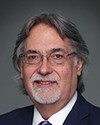Madam Chair, thank you very much.
I'd like to join my colleague, Mr. Bagnell, in acknowledging that it's Purple Day, a day on which we amplify our efforts to raise awareness for epilepsy.
I'd like to thank both of our witnesses, Ms. Sherman and Colonel Boland, for their service and for appearing today.
Ms. Sherman, in a previous phase of my career, I had the privilege of serving in the PCO. Could I ask you to back up for a minute? Canadians who are watching will be finding themselves, periodically through this committee and other conversations, in acronym land. We're talking about the DND, the CDS, PMO and PCO.
What is the PCO, and why is it so important to have an independent, professional, impartial organization, a central policy-planning agency, at this moment in the midst of an important question and investigation going forward?




